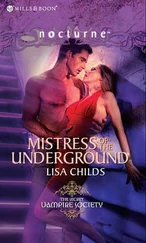Their footfalls were loud on the attic stairs. They navigated around the junk. One of them spoke, startling Cora — his head was inches below her. She kept her breath close. The men were sharks moving their snouts beneath a ship, looking for the food they sensed was close. Only thin planks separated hunter and prey.
“We don’t go up here that much since the raccoons made a nest,” Martin said.
“You can smell their mess,” the other night rider said.
The regulators departed. Martin skipped his midnight rounds in the attic, scared that they were in the teeth of an elaborate trap. Cora in her comfortable darkness patted the sturdy wall: It had kept her safe.
They had survived the chamber pot and the night riders. Martin’s final bad omen happened that morning: A mob strung up a husband and wife who hid two colored boys in their barn. Their daughter turned them in, jealous of the attention. Despite their youth, the colored boys joined the grisly gallery on the Freedom Trail. One of Ethel’s neighbors told her about it in the market and Ethel fainted dead away, pitching into a row of preserves.
Home searches were on the rise. “They’ve been so successful rounding up people that now they have to work hard to meet their quotas,” Martin said.
Cora offered that perhaps it was good the house had been searched — it would be some time before they returned. More time for the railroad to reach out, or for another opportunity to present itself.
Martin always fidgeted when Cora raised the idea of initiative. He cradled one of his childhood toys in his hands, a wooden duck. He’d worried the paint from it these last months. “Or it means the roads will be twice as hard to pass,” he said. “The boys’ll be hungry for a souvenir.” His face lit up. “Ravening — I think it means very hungry.”
Cora had been feeling poorly all day. She said good night and climbed into her nook. For all the close calls, she was in the same place she had been in for months: becalmed. Between departure and arrival, in transit like the passenger she’d been ever since she ran. Once the wind picked up she would be moving again, but for now there was only the blank and endless sea.
What a world it is, Cora thought, that makes a living prison into your only haven. Was she out of bondage or in its web: how to describe the status of a runaway? Freedom was a thing that shifted as you looked at it, the way a forest is dense with trees up close but from outside, from the empty meadow, you see its true limits. Being free had nothing to do with chains or how much space you had. On the plantation, she was not free, but she moved unrestricted on its acres, tasting the air and tracing the summer stars. The place was big in its smallness. Here, she was free of her master but slunk around a warren so tiny she couldn’t stand.
Cora hadn’t left the top floors of the house in months but her perspective roved widely. North Carolina had its Justice Hill, and she had hers. Looking down over the universe of the park, she saw the town drift where it wanted, washed by sunlight on a stone bench, cooled in the shadows of the hanging tree. But they were prisoners like she was, shackled to fear. Martin and Ethel were terrified of the watchful eyes behind every darkened window. The town huddled together on Friday nights in the hope their numbers warded off the things in the dark: the rising black tribe; the enemy who concocts accusations; the child who undertakes a magnificent revenge for a scolding and brings the house down around them. Better to hide in attics than to confront what lurked behind the faces of neighbors, friends, and family.
The park sustained them, the green harbor they preserved as the town extended itself outward, block by block and house by house. Cora thought of her garden back on Randall, the plot she cherished. Now she saw it for the joke it was — a tiny square of dirt that had convinced her she owned something. It was hers like the cotton she seeded, weeded, and picked was hers. Her plot was a shadow of something that lived elsewhere, out of sight. The way poor Michael reciting the Declaration of Independence was an echo of something that existed elsewhere. Now that she had run away and seen a bit of the country, Cora wasn’t sure the document described anything real at all. America was a ghost in the darkness, like her.
—
THAT night she took ill. Spasms in her belly woke her. In her dizziness, the nook lurched and rocked. She lost the contents of her stomach in the small space, and control of her bowels. Heat besieged the tiny room, firing the air and inside her skin. Somehow she made it to morning’s light and the lifting of the veil. The park was still there; in the night she had dreamed she was at sea and chained belowdecks. Next to her was another captive, and another, hundreds of them crying in terror. The ship bucked on swells, dove and slammed into anvils of water. She heard footsteps on the stairs, the sound of the hatch scraping, and she closed her eyes.
Cora woke in a white room, a soft mattress cupping her body. The window delivered more than a stingy puncture of sunlight. Park noise was her clock: It was late afternoon.
Ethel sat in the corner of her husband’s childhood bedroom. Her knitting piled in her lap, she stared at Cora. She felt her patient’s forehead. “Better,” Ethel said. She poured a glass of water, then brought a bowl of beef broth.
Ethel’s attitude had softened during Cora’s delirium. The runaway made so much noise moaning in the night and was so ill when they lowered her from the attic nook that they were obliged to let Fiona go for a few days. Martin had the Venezuelan pox, they told the Irish girl, caught from a tainted bag of feed, and the doctor forbid anyone to enter the house until it had run its course. He’d read about one such quarantine in a magazine, the first excuse that came into his head. They paid the girl her wages for the week. Fiona tucked the money into her purse and asked no more questions.
It was Martin’s turn to absent himself while Ethel assumed responsibility for their guest, nursing Cora through two days of fever and convulsions. The couple had made few friends during their time in the state, making it easier to abstain from the life of town. While Cora twisted in her delirium, Ethel read from the Bible to speed her recuperation. The woman’s voice entered her dreams. So stern the night Cora emerged from the mine, it now contained a quality of tenderness. She dreamed the woman kissed her forehead, motherly. Cora listened to her stories, drifting. The ark delivered the worthy, bringing them to the other side of the catastrophe. The wilderness stretched for forty years before others found their promised land.
The afternoon stretched the shadows like taffy and the park entered its period of diminished popularity as supper approached. Ethel sat in the rocking chair, smiled, and looked through the Scripture, trying to find an appropriate section.
Now that she was awake and could speak for herself, Cora told her host that the verses were unnecessary.
Ethel’s mouth formed a line. She closed the book, one thin finger holding her place. “We are all in need of our Savior’s grace,” Ethel said. “It wouldn’t be very Christian of me to let a heathen into my house, and not share His word.”
“It has been shared,” Cora said.
It had been Ethel’s childhood Bible that Martin gave to Cora, smudged and stained by her fingers. Ethel quizzed Cora, dubious as to how much their guest could read and understand. To be sure, Cora was not a natural believer, and her education had been terminated sooner than she wished. In the attic she had struggled with the words, pressed on, doubled back to difficult verses. The contradictions vexed her, even half-understood ones.
Читать дальше












